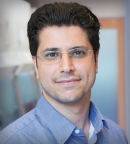Three grants for research that could transform cancer therapies have been awarded by the AACR-MPM Oncology Charitable Foundation Transformative Cancer Research Grants Program, an innovative partnership between the American Association for Cancer Research (AACR) and the UBS Oncology Impact Fund (OIF) managed by MPM Capital.
The Transformative Cancer Research Grants Program provides generous funds to investigators so they can pursue innovative research that has the potential to help guide and advance cancer treatment and make a significant impact for cancer patients. These grants are part of OIF’s impact program, which provides support for next-generation basic science research as well as patient access to oncology drugs through the UBS Optimus Foundation. OIF donates a percentage of the fund manager’s profits to the impact program, as well as royalties on approved drugs from OIF startup portfolio companies.

Margaret Foti, PhD, MD (hc)

H. Robert Horvitz, PhD
“In these challenging times, the need for high-impact, transformative research that will markedly reduce cancer incidence, morbidity, and mortality is more important than ever,” said Margaret Foti, PhD, MD (hc), Chief Executive Officer of the AACR. “The AACR is honored to continue its partnership with MPM Capital and the OIF to support early-career and mid-career scientists whose creative research approaches hold promise for catalyzing paradigm-shifting advances that will result in breakthroughs against cancer.”
These grants were selected through a highly competitive review process including an expert review panel chaired by Nobel Laureate H. Robert Horvitz, PhD, an advisor to MPM Capital and OIF.
The Grants
Sara Buhrlage, PhD, of Dana-Farber Cancer Institute, who proposed to develop a novel class of agents, bivalent deubiquitinase (DUB) proximity inducing molecules, that can selectively stabilize targeted proteins received the grant for “Bivalent DUB Recruiters for Targeted Protein Stabilization.”

Sara Buhrlage, PhD

Robert Eil, MD

Hani Goodarzi, PhD
Robert Eil, MD, of Oregon Health & Science University, will test the hypothesis that cancer cell death suppresses T-cell function through potassium-sensitive signal transduction and received the grant for “Targeting the Ionic Checkpoint on T-cell Antitumor Function.”
Hani Goodarzi, PhD, of University of California, San Francisco, will study a class of previously unknown regulatory RNA molecules that appear specifically in cancer cells, can serve as building blocks for cancer-engineered regulatory pathways, and received the grant for “Discovering and Targeting Cancer-Engineered Pathways of Metastasis.”
Each project will receive $400,000 over a 2-year period. In this program, proposed research must represent a highly innovative approach to a major problem or challenge in cancer research that may not be funded through conventional channels. The funded projects are expected to catalyze important advances in cancer research and should have a potentially transformative impact on future clinical practice. The projects can be focused on any area of basic, translational, or clinical research.

